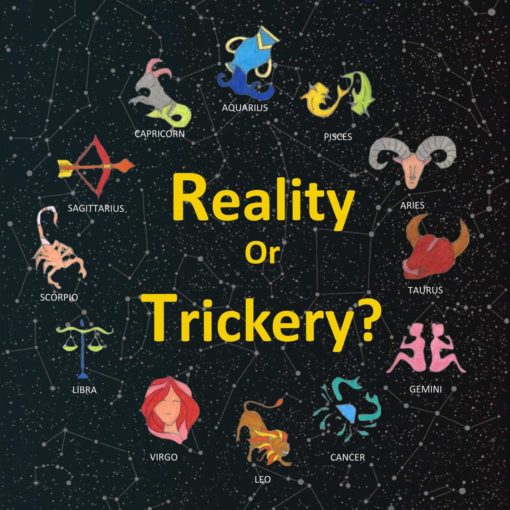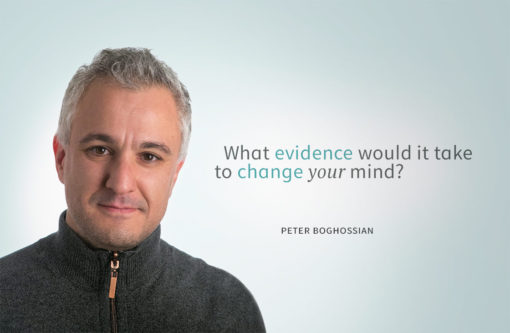In Science Salon # 81, Michael Shermer speaks with award-winning University of Bristol psychologist Bruce Hood about his brand new book, Possessed: Why We Want More Than We Need, which draws on research to explain why our uniquely human preoccupation with ownership governs our behavior from the cradle to the grave, even when it is often irrational, and destructive.
Tags
-
browse by topic
critical thinking
eSkeptic for September 3, 2019
Junior Skeptic: An Easy Guide to Baloney Detection!

In an era of “fake news,” “post truth,” and just plain old-as-time baloney, kids need critical thinking more than ever! They need tools to sift fact from fiction when they navigate YouTube, television, and social media. To help, we created “An Easy Guide to Baloney Detection!”… DOWNLOAD the free PDF
Not in Your Stars

Harriet Hall, M.D. (aka the SkepDoc) reviews Horoscopes: Reality or Trickery? by Kimberly Blaker (Green Grove Press. 2018. 78 pages.), a delightful new book for children age 9–13 that encourages readers to ask questions and gives them the tools to find the answers for themselves.
eSkeptic for April 25, 2018

In this week’s eSkeptic, Harriet Hall, M.D. (aka the SkepDoc) reviews Horoscopes: Reality or Trickery? by Kimberly Blaker (Green Grove Press. 2018. 78 pages.), a delightful new book for children age 9–13 that encourages readers to ask questions and gives them the tools to find the answers for themselves.
Tell Us Your Story. Become a Card-Carrying Skeptic!
We all remember that one moment when we began to think like a skeptic. Join us in celebrating our 25th anniversary by telling us the story of when you became a Card-Carrying Skeptic.
Astonishing Legends, Questionable Facts
Did a family in Kentucky get drunk and mistake owls for ‘space-goblins’, or was something much more complex going on that hot August night in 1955?
eSkeptic for May 3, 2017

In this week’s eSkeptic, Peter Boghossian says that students taught to formulate beliefs on the basis of evidence may, ironically, be digging themselves into cognitive sinkholes — and, the more intelligent they are, the deeper the hole…
What Would it Take to Change Your Mind?

On a scale from 1–10, how confident are you in a belief that you hold? What evidence could you encounter that would undermine your confidence? What would it take to lower your confidence from 9 to 8, or even 6?
eSkeptic for April 5, 2017
In his April 2017 ‘Skeptic’ column for Scientific American, Michael Shermer discusses the principle of proportionality: that we should prefer the more probable explanation over the less probable. Also in this week’s eSkeptic, MonsterTalk interviews folklorist and author Mark Norman to discuss legends of black hounds.
The Passing of a Critical Thinking Giant: Richard Paul (1937–2015)

Greg Hart celebrates the life and memory of critical thinking giant Dr. Richard Paul (1937–2015) — the founder and iconic force behind the Foundation for Critical Thinking — who passed away on August 30, 2015 after a lengthy battle with Parkinson’s.
eSkeptic for July 15, 2015
The human tendency to organize information even where no useful information exists appears to be hardwired into our brains. In this week’s eSkeptic, we present on article from the archives of Skeptic magazine issue 5.1, from 1997 wherein professional magician Jamy Ian Swiss discusses critical thinking as a way of protecting ourselves from the threat of deception.
eSkeptic for April 15, 2015
In this week’s eSkeptic, John E. Buckner V and Rebecca A. Buckner discuss compartmentalization and conformity as possible socio-psychological mechanisms that might explain how individuals, through education, can decrease their paranormal/supernatural beliefs without improving their critical thinking skills.
eSkeptic for March 25, 2015
In this week’s eSkeptic, Kevin Mccaffree and Anondah Saide present a meta-analysis of peer-reviewed empirical studies that evaluate the success of teaching critical thinking strategies in the classroom. In addition, they discuss some reasons for the limited impact of these strategies.
More On Why Smart People Are Not Always Rational
Barbara Drescher digs further into the roots of irrationality in Part Two of her exploration of the difference between rationality and intelligence.
14-09-17
The Skeptics Society is proud to announce the creation of our brand new group blog, INSIGHT at Skeptic.com. Dedicated to the spirit of curiosity and grounded in scientific skepticism’s useful, investigative tradition of public service, INSIGHT will shed light, offer critical perspective, and serve as a broadly accessible, evidence-based resource on mysteries of science, paranormal claims, and the wild, woolly, wonderful weirdness of the fringe.
Who Needs It? (Science and Critical Thinking, That Is)
In a guest post, Eugenie Scott welcomes the creation of the Skeptics Society’s new INSIGHT blog, and argues that science and critical thinking are for everyone.
14-04-30
In this week’s eSkeptic, Harriet Hall, M.D., The SkepDoc, reviews Abominable Science! Origins of the Yeti, Nessie, and Other Famous Cryptids by Daniel Loxton and Donald R. Prothero (Columbia University Press, 2013. ISBN: 978-0231153201). This review appeared in Skeptic magazine issue 18.4 (2013)
14-02-05
In this week’s eSkeptic, Michael Shermer asks whether a scientific utopia can succeed; Daniel Loxton shares some thoughts from Carl Sagan about the value of scientific confrontation of pseudoscientific ideas; and Skepticality interview Robert Blaskiewicz and Guy Harrison about critical thinking.
13-11-20
Do you know someone who has had a mind altering experience like the examples that we list in this FREE PDF booklet? These phenomena are powerful and are one of the foundations of widespread belief in the paranormal. As skeptics are well aware that accepting these beliefs can be dangerous. The Skeptics Society the much-needed scientific explanation for these and other phenomena. Join us in our many efforts to do that and make a tax-deductible donation online today.
13-06-12
We are surrounded by information: on TV, the Internet, in magazines, books, and emails from friends, family, commercial advertisers, politicians and other advocates making extraordinary claims. In this week’s eSkeptic, Donna L. Halper discusses some examples of how society has been duped, and shares some media literacy rules (skepticism and critical thinking) that will help you evaluate and assess claims for accuracy. This article appeared in Skeptic magazine issue 17.4 (2012).
SKEPTIC App
Whether at home or on the go, the SKEPTIC App is the easiest way to read your favorite articles. Within the app, users can purchase the current issue and back issues. Download the app today and get a 30-day free trial subscription.








